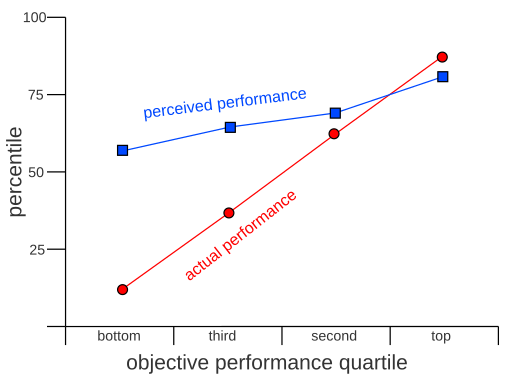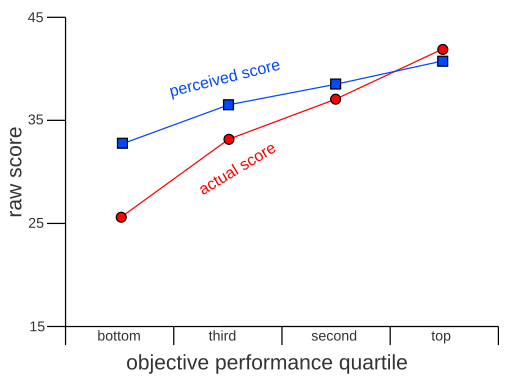Based on what I know of Imposter Syndrome and the Dunning-Kruger effect, it seems you’re at your most competent when you feel like you’re at your least.
So if you’re feeling badly because you feel like you don’t know enough to do your job, take some time to remind yourself that other people who appear to be confident have no idea what they’re doing.
It’s fake-it-till-you-make-it all the way down.
Except for the narcissist that honestly believes they are crushing it, because to believe otherwise would shatter their whole world/existence.
I felt like that early in my career. I used to think that being a rockstar developer was a good thing, and I’d be happy to describe myself as one.
The thing is, a lot of rockstars are really just churning out heaps of unmaintainable code. They think they have a high degree of proficiency, they’re confident in their competence, but there’s a disconnect between what they think and what they produce.
It can be a sign of personal improvement to question yourself when you think you’re doing great. We owe it to ourselves to ask ourselves critically if we can be doing better. Because if we don’t, and we just assume we’re awesome, then we’ll happily churn out sub-awesome cruft.
The insidious thing is that self-criticism leads to self-doubt, and imposter syndrome can be quite paralyzing. But if you learn to control your criticism instead of allowing your criticism to control you, you can achieve higher heights than rockstardom.
A rockstar developer doesn’t churn out unmaintainable, by definition.
The number of people who think they are rockstar developers but clearly aren’t is probably close to the number of cover bands who see themselves as undiscovered rockstars.
I’ve worked with people like this, their best hope is to fail upwards into management.
The only way to know if you are competent coder is for other coders to tell you. If none are telling you, your imposter syndrome isn’t.
There are other signs as well but these aren’t taught in formal education. An example being the ability to recognize how your old code could be improved. The way requirements stack over time makes this a certainty in any product.
The only way to know if you are competent coder is for other coders to tell you. If none are telling you, your imposter syndrome isn’t.
Or, considering that they’re mostly introverts, if they look approvingly in the general direction of your shoes…
Based on what I know of Imposter Syndrome and the Dunning-Kruger effect, it seems you’re at your most competent when you feel like you’re at your least.
I’m not sure how you come to that conclusion, even with the internet meme version of the Dunning-Kruger effect. In the meme version, the incompetent think they are most competent, but I don’t think it follows that the most competent would think they are least competent.
I would summarize the actual Dunning-Kruger effect as: people tend to think they are a bit above average, and actual skill factors in only slightly. Worth emphasizing that these results are over groups of people, and individuals have extreme variation.
https://en.wikipedia.org/wiki/Dunning–Kruger_effect


Well, I’m not a psychologist, so I suppose my interpretation might not be correct - the irony mounts.
But from the graphs you shared, it looks to me like the only people who underestimated themselves were the top performers. And from what I know firsthand with imposter syndrome, a competent person underestimates themselves.
I used hyperbole for effect, so I don’t think that if you believe you have zero competence in something because you actually have zero competence means that you’re secretly good at something. If you know nothing about plumbing, don’t try to install a toilet.
But if you’re working in the software factory then you don’t actually have zero competence, you probably have formal education and some experience. Having that feeling that you might not be good enough is a sign that you’re on the right track.
That graph is what the herd behavior looks like. But if you break down, take 2 people who are actually on bottom quartile. While on average they think they’re 3rd quartile aka a bit above average, one of them will have impostor syndrome and the other one will think they’re the smartest person around. Then for the top 2 smartest people around, one will know it for sure and the other will think of themselves less than the overconfident newbie described above.
Am I good enough to have impostor syndrome?
deleted by creator




